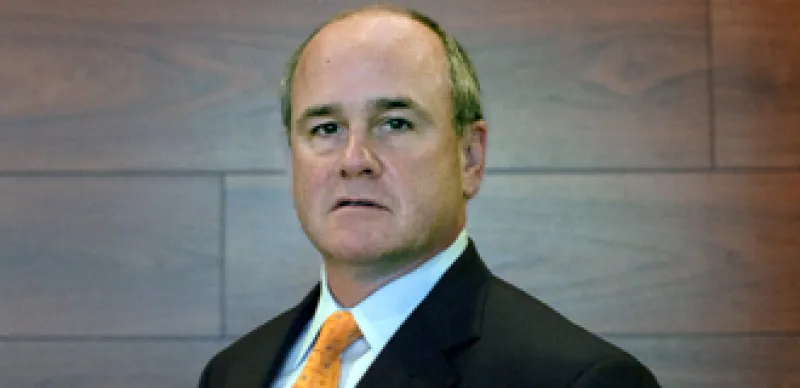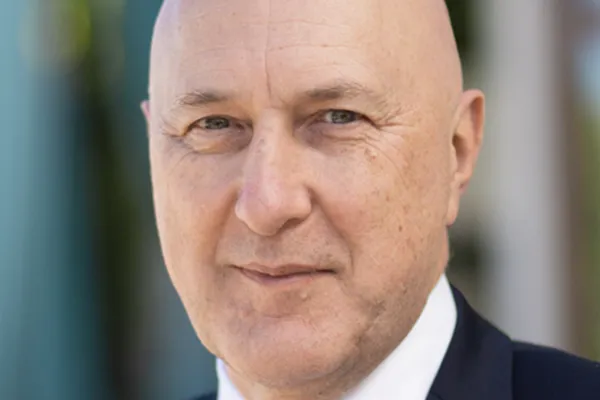Traveling at full throttle through open seas, a container ship takes nearly five miles to make a turn. But for Triton Container International, the San Francisco–based company that leases the containers, the turnaround has to be fast to compete in today’s turbulent economic environment.
Late last year, Triton sought to raise capital quickly to buy sea containers in preparation for an anticipated surge in international trade. The company turned to Stephen Monahan Jr., global head of debt private placement at Bank of America Merrill Lynch. Since 1988, Monahan, 52, has helped Triton raise $1.5 billion in 21 separate private placement deals.
Though the market was still fragile in February when the latest deal was completed, Monahan’s execution raised $450 million for Triton, more than double the original target. Strong investor demand also allowed the deal to price at the lowest end of the estimated range. The seven-year note carries a coupon of 6.07 percent, and the ten-year note has a 6.6 percent coupon. These secured notes, with a triple-B rating, were priced in March at 275 basis points over comparable Treasury yields — not a bad showing. By comparison, Chicago-based railcar leasing company GATX Corp.’s five-year notes, which are rated Baa1/BBB+, were trading at about 250 basis points over Treasuries during the same time. “Steve was able to convey our enthusiasm to our investor base,” says Triton chairman Edward Schneider.
For the past 25 years, Monahan has quietly steered big deals, helping companies raise long-term debt in the private placement market. Both public and private companies, usually ranked investment-grade, access the private placement market for debt ranging from less than five years to up to 30 years. Though his employer has morphed four times —from Continental Bank to NationsBank to Bank of America and now BofA Merrill — Monahan has retained his core team. “Steve is a person of integrity who builds long-standing relationships with both the issuers and the buyers,” says Roger Crandall, CEO of Massachusetts Mutual Life Insurance Co., which invests in private placement debt to diversify its debt holdings.
BofA Merrill led Thomson Reuters’ private placement debt league table last year with a 26 percent market share. Though the market is small — total issuance volume last year was only $26 billion, dwarfed by public debt issuance of $563 billion in investment-grade corporate bonds, excluding financials — it is lucrative. BofA Merrill declined to comment on fees, but market sources say fees for private placement can be double that of public debt underwriting.
Growing up in the quaint bedroom community of Wilton, Connecticut, Monahan showed an interest in Wall Street at an early age. He started with internships with his father’s brokerage firm in Bridgeport, Connecticut, graduated from Boston College with a major in finance and began his career at Irving Trust Co. in New York. Five years later he joined Continental Bank’s capital markets group. In 1987 he founded the bank’s private placement division.
The financial crisis, he says, has turned corporations to this exclusive venue for alternative financing. “In the past, people assumed bank debt could automatically be refinanced when it was due,” Monahan says. “Now they are reducing reliance on bank debt because refinancing risk is a real issue.” During the first half of this year, $22 billion in private placement debt was issued, up 105 percent from last year. It was Monahan who helped Rolls-Royce Capital raise $106 million in June and who served as lead agent for the National Football League’s $835 million private placement.
Any private placement deal places tight covenants, such as a limit on leverage ratios, on the issuing companies. Nonetheless, Monahan predicts more issuers from emerging markets will come to the market. “Investors are pressured to look for extra yield,” he says. “The private placement market offers a powerful and viable way for investors to diversify.”






